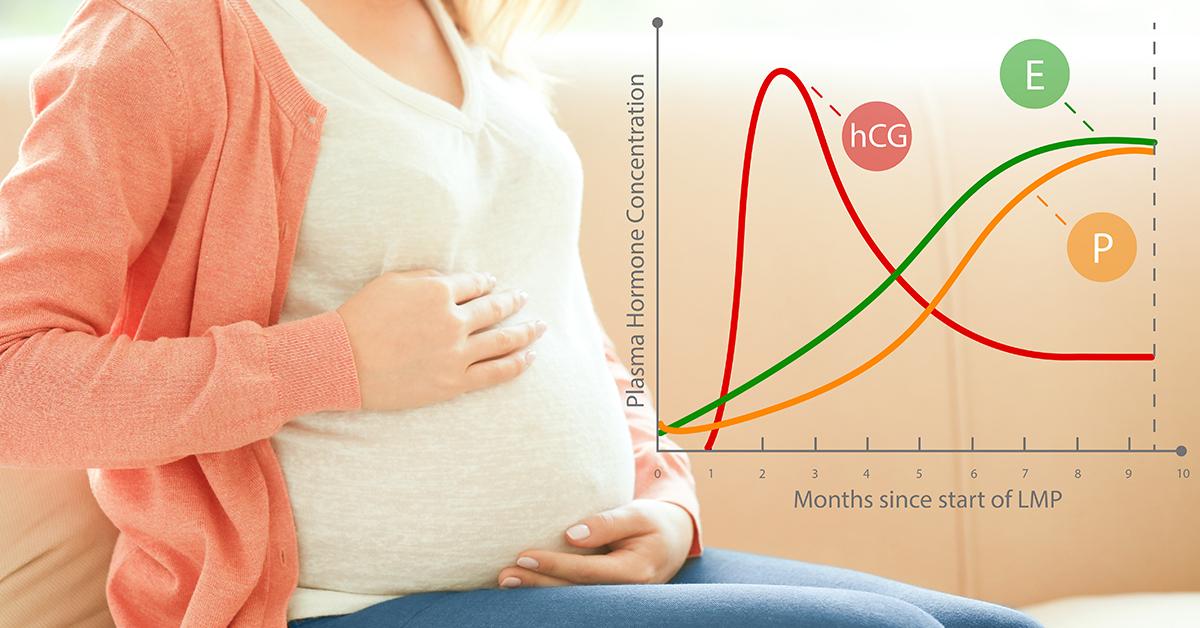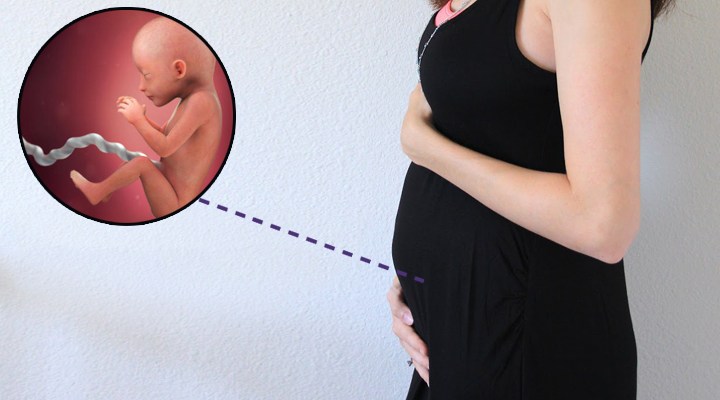
Your last period was 28 days ago, so even though implantation happened within the past few days, you’re already considered four weeks pregnant. Say you have a 28-day cycle, and after the two-week wait to take a pregnancy test, you got a positive pregnancy test on the day you missed your period. Why is dating from last menstrual period or LMP inaccurate? If your dating ultrasound does not match the due date based on your LMP, your doctor may adjust your due date according to the ultrasound, as this is typically considered more accurate. Since healthy embryos grow at a highly predictable rate during the first trimester, measuring the length of the embryo (called the “crown-to-rump” measurement) can provide a more accurate estimation of how many weeks pregnant you are. Your doctor may adjust your due date during a “dating ultrasound,” which typically occurs during one of your first appointments. Can an ultrasound determine a more accurate due date? While LMP is a more accessible date, it is problematic because it inaccurately estimates how many weeks pregnant you actually are. Why is the least precise method for dating pregnancy also the most common one? Because it’s the easiest: way more women remember when their last period was than when they last ovulated.ĭue dates are calculated by adding 280 days (nine months and a week) to the first day of LMP, presumably more women remember when they last had their period than when they ovulated (or even better, when implantation would have occurred). For any woman who doesn’t have a textbook 28-day cycle with ovulation on day 14, this method produces an inaccurate due date.

Less accurate is when ovulation occurs.The downside of dating pregnancy from implantation is that it’s very rare that you would be able to know exactly when implantation occurred. As soon as this process is complete, the embryo begins producing the hormone hCG, which should be detectable as soon as you can take a pregnancy test by around 12 DPO. Implantation typically occurs between eight – 10 days post-ovulation (DPO). Most accurate is when implantation occurs.Here is an explanation of the three possible start dates that could be used for determining how many weeks pregnant you are, ranked in order of accuracy: That’s right-your doctor considers day one of your pregnancy as the first day of your period, when you could not have been pregnant! How accurately can medicine determine how many weeks pregnant a woman is? Rather, it starts from the first day of your last menstrual period. The standard method of dating pregnancies does not start from conception or from implantation. By that logic, the most accurate way of dating pregnancy would be beginning from implantation. Recent research indicates that conception itself is not a rare event, but only a small portion of fertilized eggs are “fit” enough to implant.

Politics aside, that’s not entirely accurate. Most people think that pregnancy starts at conception. Why is it important to get an accurate due date?.What’s the little-known secret for accurately dating your pregnancy?.How are due dates typically calculated by doctors, and why is this method technically wrong?.When does pregnancy really begin? It’s probably not when you think.

More than three weeks early? You and your baby will be considered pre-term, which has major health implications. Past your due date? Your doctor will probably want to induce you after one to two weeks. It’s tempting to brush off a few days as a simple rounding error, but here’s why you should care: despite their inaccurate calculations, due dates are still used as hard medical deadlines. Even more surprising, a whopping 30% of women don’t give birth within the two-week range of their due date. In fact, only 4% of women actually give birth on their due dates, with a majority giving birth between one and four days after the calculated due date. Finding out how many weeks pregnant you are may seem like a straightforward question, but due date calculation is often inaccurate.


 0 kommentar(er)
0 kommentar(er)
